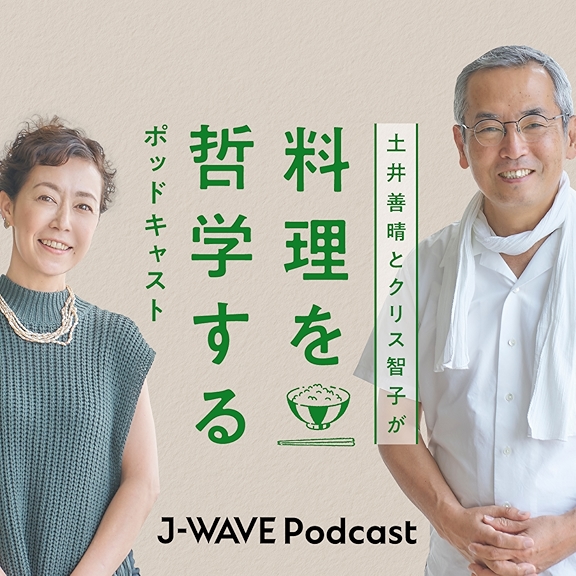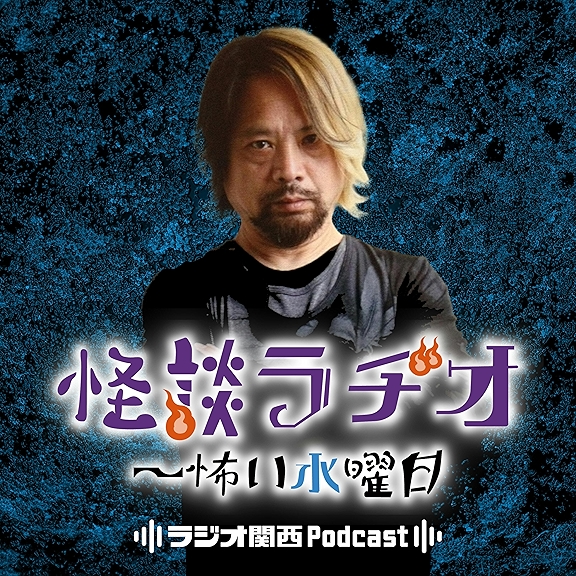
EP 70: How to attract WHAT YOU WANT and GET IT? with Gunther Mueller
Optimal Health Strategist Gunther Mueller has developed what he calls the 'Magnetic Mind Method." This means he helps people tap into our subconscious to create and manifest the life we've always wanted.
=============================================
Ari Gronich
0:14
Welcome back to another episode of creating a new tomorrow. I am your host Ari Gronich today with me is Gunther Mueller. And Gunther is a certified magnetic mind coach now, you know, I'm gonna let him explain that but 30 years of successfully being an entrepreneur, optimal health strategist, you have, you know, you have three kids alongside all the work that you've done, but you've actually taken and builds a business in three years to $20 million in the anti-aging, I believe, field, founded another company, you've bought and sold several companies. So today, we're going to talk a lot about not just the health and wellness, not just the mindset, but also kind of the deep and down and dirty parts of business a little bit. And I'm going to kind of take you on a journey today audience that hopefully will lead you into a place where you could go, Oh, yeah, I got this. And I can move ahead tomorrow, creating my new tomorrow, today. So anyway, Gunther, tell us a little bit about yourself.
Gunther Mueller
1:24
Hey, Ari, thank you so much for having me on, create a new tomorrow. It's amazing to be here because the title of your show is completely in alignment with the information I'm passionate about sharing today. And hopefully the audience gets a lot out of this today. So a little bit about me and I grew up middle class in New York City, bolted out of there in 1984 to go skiing in Colorado and go to school out there because scheme was my thing and need to go ski the bigger mountains but you know, did the thing that you were supposed to do get good grades, go to college, you know, do that whole rigamarole thing. And then I became a professional ski bum for four years after college. So I lived in Vail, lived in a steamboat for a while and commercial fish in Alaska, worked on the Valdez oil spill. If anybody remembers what that was, I was in Prince William Sound for about 60 days, moving people around and equipment and things like that. And then I started my sales career basically in the 90s, selling meat and seafood door to door because I had experience in the seafood industry. You know, I knew what good stuff was. I built about 3000 customers in the Colorado mountainous region. This is the days before Sam's Club and before you know, Costco and all that.
Ari Gronich
2:41
So I just want to say this. So when I was 17 and a half 18. And I'm just finishing up school, high school and rural Oregon. Right? Yeah, I was selling meat and seafood door to door in Oregon on the back of a truck with a freezer on the back of a truck just like a regular big old freezer, laying in the bed of a truck. And so.
Gunther Mueller
3:14
Hey I did it for 10 years. And I loved it because I got to wear shorts and a golf shirt every day. And I had great customers all over the place and loved it. And then I turned it into an online company in 1998 and then sold that company to one of my suppliers. And then I got into the restaurant business for 14 years. I had about four restaurants that I managed and so food was kinda in my blood food distribution. I work for a we'll start up coffee roaster and then I created America's freshest coffee for the Schwann food company for a while. I went to go to the corporate gig as a regional vice president for them managed a million square mile territory did really well. But the corporate world was not of my liking or choosing. So I you know, get this entrepreneurial blood in my in my veins. And I think I got that from my mom, she know how to sell. She's a travel agent for 50 years, and just knew how to get people to go great places, right. And so then after that I've been in the solar industry did really well used to sell $4 million a month worth of solar panels. And then from solar. I got into the medical industry, which I've been in for over 10 years now. And that's where I created that company and about three years doing about 20 million a year and it was really changing the paradigm of medicine with your average ob-gyn and family practice doctor to optimize hormones and optimize nutrition instead of being so pharmaceutically based. I mean it was really a quantum shift in medicine for a lot of people I was really specialized in something called pellet therapy, which was getting hormones actually inserted into the body and it's you know, it's everywhere now, but when I did it 10 years ago, nobody knew what a pellet was. It was, so I was kind of one of the spear hitters of that therapy in the United States.
Ari Gronich
5:06
Very cool. So nowadays, you know, you're not doing that exactly. You're, you're doing this thing called the magnetic mind. Right, coach. Now, I want to get into this a little bit. So how did you get started working with mind? How did mindset play a role in your sales? So I'm kind of doing a multi question here. So how did mindset play a role in your sales? How did you get into mindset? I know for a friend of mine, oh, he was with Xerox for a while, and they had Zig Ziglar, and all these sales training. So just kind of that background. And then what made that turn into what you're doing now? And how do you see this as kind of that next evolution?
Gunther Mueller
5:54
Yeah, great question Ari, I love answering it. So what happened was in those days of selling meat and seafood, like I was always a true seeker, even from being a little kid, you know, I used to go walk by a church and think, oh, God lives there. You know what I mean? And but how does that all work out? What's the reality of the universe? Basically, I want to know how things work, right? And nobody really was able to answer it for me. And so in my days of selling meat and seafood door to door, my vehicle was my university, I listened to not the radio or pop music or anything, I listened to the greats like Zig Ziglar. You know, one of my favorite quotes from Zig Ziglar is you can have anything in life if you help enough other people get what they want. You know, and he was a great guy. And, you know, the Brian Tracy's of the world, the Tony Robbins of the world. Look, I what I'm here to share today, I did not create, right, I stand on the shoulders of giants, okay, who have investigated every aspect of personal development, human consciousness, you know, the whole quantum physical research over the last 40 years, there's so much science behind understanding the power that we have in our mind. But it all started with reading, thinking Grow Rich, it was one of the first books and it's the quintessential text, you know, in, let's call it getting what you want in life, or, you know, creating a new tomorrow, like, how do you do it, you know, you're living your life, and you want something different, you want something better. And we're gonna talk about that a little bit later. But you want something different, you want something better, there's a difference between the two ideas on so I started doing that one book after another one cassette tape after another really dating myself there, right? cassette tapes was the thing. And then the DVDs, and I used to drive 100, 200 miles a day. So all that education, all that content, all of that listening to a different way to think about things. And that kind of got embedded in my cellular structure from all those years of doing that. And today, I think the magnetic mind method is really a revolution in the personal development space. Because I'm at the place today to tell everyone that look, you're not broken. There's nothing for you to fix. And a lot of the history of the personal development movement has always been going back, to fix yourself to do something to get something right, something's broken inside of your personality, or something's broken in your being, and you have to fix it first in order to get what you want. I'm here today to tell everyone that we look we need to back out of the problem-solving reality and move into the creator stance. And the creator stances that power position. It's like, we need to remember who we truly are that we are connected to an infinite field of possibilities. And when we become consciously creative, we can create whatever situation reality manifest anything that we want. And this is backed up by science.
Ari Gronich
8:54
So I'm gonna ask you, I'm gonna, I'm gonna go back a step. I'm gonna ask you a question you may not have heard before. So I started doing asked when I was eight, life spring, landmark forum, I mean, Cyworld, MIT. I've done so many of these self-improvement movement, workshops and programs and weekends and events and things. What I watch, what I observe, is about 90 so odd percent of the people go there are motivated for about two weeks to a month, and then it dies down. 5% start following the practices that they hear and maybe last a year or two or three until some trauma, gets them out of it. And then there's about 4%, right, that really buy in and get the information and then about 1% or so. This is being this is just my statistics and my, my, what I've watched that actually like live, the information that they've been taught. So here's my question to you. You have done all of these things. And you've taken it. And you've actually become I don't know which percentage but one of the 10, let's say, part of that 10% of the people, right? What makes you have that ability versus say, somebody else? What do you think is the difference between what you were able to do with the information and technology and experiences that you received? That you think the 90% of people who don't ever shift haven't gotten? What do you think that break is that delineation?
Gunther Mueller
10:55
The break is truly listening to your own voice inside your head, okay, because especially today in the era of social media, we are so enamored or concerned with what other people think. I mean, it's getting to the point of ridiculousness, where our self-esteem if we don't look out for it is really coming from what other people do, do they like us, do they share us, do they do this kind of thing, right? And so back that when you asked me that question, the first thing that pops up in my mind is, I have had the ability to listen to my own voice. Now, I'm not saying that everything that I've done has been successful. Look, the path to success is laced with failure. And it's in failure, that you learn the most important lessons, if you had nothing but success in life, you would not be very seasoned, you would not be very skilled, you would not be very proficient in anything. It's through failure, it's through challenge. And this is really the human experience. A lot of people will say, look, I'd like to have a life with just no problems. I'm telling you, you'd be bored out of your mind, if you had no problems, okay? If there were no challenges, no problems, nothing to deal with in life, you would be bored out of your skull. That's just not why we're here as human beings, we're going to have this human experience. Now the beautiful place to be is to be consciously creative to kind of be an observer of what's going on, you know, an airplane at 30. 40,000 feet can see the landscape, right. And when you have that observer mentality, but this takes some practice, this takes some training, right? They don't teach it in school, they don't teach it in college, most of your parents don't teach it to their kids. Unless you become a hungry seeker to a degree and find this out for yourself and your percentages, I agree with so many people get information, they get knowledge. But look, the power is in the knowledge applied. You can go course after course, book after book, seminar, after seminar, do all these retreats, do all kinds of thing, like you said, you feel good for about a month. And then you just forget because you have not applied. And so then the second piece, listening to your own inner voice, because look, you know what if your desires are, let's call it God's plan for your life. What if those desires, What if those things that voice that's trying to speak to you is the directional signal in your life, and you keep ignoring it, you don't listen to it, you never take any time, you've got noise blaring at you all the time, and you never listen to the little voice that's inside and then trusted enough to follow it and not worry so much about what others may think of you. Correct? That's one of the key points right there.
Ari Gronich
13:51
I'm pondering that because there's definitely a level of truth to I think that people go home after getting motivated. And then, you know, somebody says, Well, that wasn't probably what you know, like, or that's not going to work or that's not you know, that you get excited about what you're doing. So I can understand that. I think it goes a little deeper into the depths of the psyche, though. So that concept that you've stated of worrying about what other people think of you, right? goes deeper. So let's drop down into a deeper level of that.
Gunther Mueller
14:33
Love it. So to go deeper is that we all have some self-sabotaging identities that we have acquired through this, let's call it the life stream of this life. And it really is impactful from like zero to seven years old, you know, the data and the science tells us that that's when we just really have an open mind. And we are trying to figure out how it is here. We're trying to figure out You know how to get love. We're trying to figure out how to get nourishment. We're trying to figure out how to get a safe place to sleep. We're trying to figure out how to get what we want, when we're in that stage of development. And so we make certain decisions about life about how it is here. That's all it is. It's just we're trying to figure out what's it like here? And how do I survive. And so if you have abuse, or if you have trauma, or you have some episodes in your life that are unpleasing, the human reality is that we avoid pain. And we move to pleasure. But we avoid pain, a hell of a lot more than we move to pleasure. So what the reality is, is mediocrity becomes okay. Because it's not painful, right? It's just tight, I'm not in excruciating pain. I'm not in a, you know, ecstasy or pleasure. So I am okay with mediocrity. And the part of our mind, we have the conscious mind, the subconscious mind, and what I'm going to introduce to you is the superconscious mind, and there's different names for that, but we like to call it the superconscious. In the subconscious programming, we have put things in there to prevent pain or to keep us safe. And the job of the egoic mind that conscious mind is to maintain the status quo. The conscious mind does not like change, because it knows how to navigate what is successfully. Right. And so some of the sabotaging identities that we pick up through a lifetime of experience, is things like I'm not good enough. I'm not worthy. I'm not capable, meaning I don't know enough, I'm not. This is an example of someone that never gets out of school. And they continually go for the next degree and the next degree in the next degree, right? I'm not, I'm just not capable of any one more thing. And then I'll be okay. I'm insignificant, I'm small, I'm not big enough, right, I'm insignificant, I'm not perfect. Many of us have this perfectionist stream in our mind can't do that, till I perfect this, this has to be just absolutely perfect before I get what I want. And then another big one is I don't belong; this is what we just talked about is this belonging. And it's okay to belong, it's okay to have a great tribe and a cool group of people, but you still have to be you. And so in light of the probably the top six self-sabotaging identities, and everybody has one or two of them, or all six of them in different degrees that we've incorporated into our subconscious program. And I want, I want you to be thinking about the subconscious like Windows 10 on your computer, okay, when you turn on your computer, Windows 10, boots up, the thing just runs, you don't know how it's running, you don't know the code, you don't know anything like every once in a while an update gets sent to Windows NT update, and you restart. And now the program is different than it was before. So we have to do the same thing to our subconscious program, because it's running completely unconsciously. And we put things in there to keep us safe. So when we when I say we need to step out of the problem solving reality, and take the creator stance, most of the audience is saying probably what does he mean by that? Right? What do you mean by a creative stance? Let me give you four examples of what I'm going to call true choices. And…
Ari Gronich
18:16
First let's go through what problem solving is. Right? And then we'll go into that because we've gone through an automatic response system, which is your conscience, right.
Gunther Mueller
18:31
So problem solving is what we've always been trained to do. We want what we want. So how do we get what we want? So the problem is to figure out a way to get what we want, and we do it consciously.
Ari Gronich
18:45
So you're saying that the problem is wanting something that we don't have?
Gunther Mueller
18:51
Yeah, but that's not the problem. Your desire, your desire is totally fine. You can desire and want whatever you want. That's not the wrong part. The part is that we've been trained to figure out in our conscious mind, how to solve the problem of not having it. Right. One having it is not the problem. It's the way we go about getting it anything comes the problem. So to think about goal setting, right? We've been taught to set SMART goals, and you got to have a date on it. You got to be clear about what you want. And then there's 5, 6, 10 steps or whatever to get what you want. And those things have to happen by a certain date. So when you do a SMART goal, you have in your own conscious mind figured out how it needs to happen. You have allowed no space for the field of infinite possibilities to provide the solution to you in some let's call it magical way. Okay, so you've spent your conscious energy your mind solving the problem. Let's take the idea of abundance, financial abundance. Right. Let's create a new tomorrow. And my two choices, I want to have the experience of having more than enough. I just want this experience of financial abundance and abundance in all aspects of my life. That's my true choice. I just always want to be in the experience of having more than enough. Well, how do I do that? Being in the entrepreneurial world, I deal with a lot of entrepreneurs that have decided or chosen that they need a big successful business in order to have that. And I always have to put the brakes on a little bit and say, Look, the business may not be the true choice. What your true choice is, is you want to have the experience of abundance. Having a successful business made give you the experience of massive struggle, okay, if you don't start a business, having the end in mind, you will get to a completed business that potentially you might hate it, you might not want, it may dominate your life. I mean, how many business owners are there where the business owns them? They don't own the business. Right? So be careful what you ask for Be careful what you wish for. Because if you do it in that problem-solving thing, you're looking at it from a field of limited possibilities. And when I say step out of the problem-solving thing, it's focusing on what you want, not on how it's going to show up, not on how it's going to manifest not on the how to how truly is up to the infinite field and the superconscious. Because look, abundance could happen by finding $100 million in a suitcase on the street. You could find it floating in the ocean, you want. And when we talk about infinite possibilities, I mean, infinite possibilities, whatever your imagination could imagine, and how abundance could show up for you. It's possible. But our conscious mind rationally goes in and say, Well, if you have these sabotaging identities, they're well, I'm not worthy of that that's never gonna happen to me, or I'm not good enough. That can never happen to me or I don't have enough knowledge. I don't have this. I'm insignificant, too small. I would never find that suitcase. Like, I'm just not lucky. You know what I mean? Like I do, I've walked right by the suitcase, and I'd miss it. And I would never find it right. So the programming and the tape that's running in that subconscious mind really rules the day. And so did I answer your question about what I mean by problem solving?
Ari Gronich
22:30
Yes. And I just want to kind of get into what I heard was Basic Law of Attraction, right? So going to the experience that you want to experience, you know, whether it's visioning and feeling all the feelings of the perfect day or all, you know, those kinds of things. So that's cool. Because obviously, I want to experience the abundance of life fully, never needing or wanting anything, just everything is available at all times. Right. Now, the key thing that I believe was missing from the law of attraction was the step of action. Now, within what you just said, the confines of what you said is, we're not doing the SMART goal where we're creating the necessary actions from a problem solving point of view, we're going into the infinite. How does one get to the action side from that place?
Gunther Mueller
23:31
So that's the fifth step in the five-step magnetic mind method. So it's the last thing we do? And we asked the question, okay, what is the next obvious action? And that you're right, that's where the secret, you know, great shows and opening the mind to a lot of possibilities and the power of the mind. And why I always like to say is the law of attraction, the secret is trying to solve the problem from the conscious mind. So this is where affirmation is. And I'm not saying they're wrong. And I'm not saying they don't work. They just take time. And they take that discipline, as you said in the beginning, right? People feel great for a month and they do it, and then it Peters off. Why is that? Because they don't see instantaneous results. Which is another concept I just want to throw in here as a seasoning real quick is the idea of as soon as possible. You see when you use a SMART goal, and you put a date on it, and the date goes by and it didn't happen. What most people do. Give up, or quit. Oh, well, didn't happen. I guess goal setting must not be for me. Goal setting doesn't work for me. Right? I tried, it doesn't work. So take any of the great personalities that we look to an Elan musk or you know, Prince or Madonna or you know, any of these celebrity type people that we look at. You think they have ever had to pick themselves up and try again, and try again, and keep going. Keep going for what they loved. Kept going like you look at Richard Branson, right? Just the other day he got into space. I mean, how long is that dream been manifesting, for him, of putting together all the engineers and you know, the concept laced with failure. And he's does other things and he's failed just as much as he succeeded in his life, maybe even failed a little bit more than he's succeeded, right. Way more. And he is not a perfect personality, right? If you got to know any of these people, they are not perfect beings in every aspect of their life, there is not, but they went after what they love to do, they went after that desire and focused on nothing else, you know, taken Oprah Winfrey or something like that, you know, built her media empire, she focused on what she loved, and she had perfect human, the perfect individual of No. And that's where this whole idea of perfection and all that comes in these things, we just have to let go. Right. That you have to let these things go. And there's a process to doing that. But when we try to solve the problem from the conscious mind, we're bumping into that subconscious programming. And what I'm going to share with you is how we go from the superconscious side, we just send an update to the subconscious, we do that with something called recode. Where we go in, we send an update, and we don't need to know what the problem was, we don't need to know what created the problem. We don't need to know if it was mommy or daddy or a teacher or some other situation going on. Right?
Ari Gronich
26:27
So this sounds very different than, say, a bug fix for a software update, where when you go through the update, now all of a sudden, all the programs start acting wonky, you know, and then you get the blue screen of death. So we don't want to have the blue screen of death with our with our upgrades, right? We want to have the bugs, you know, eliminated. So how do we do the difference between those two, right? How do we get the upgrade to be smooth?
Gunther Mueller
26:59
We do that because you're super conscious self, this highest version of yourself that is connected to the field, the infinite field and a great book to read on the field as Lynne McTaggart book just called the field. So much research has been done. We as human individuations are all part of this field, whether you're conscious of it or not. Okay, you're connected. And we are all connected. And if you look into the science, you look at all the experiments that have happened, we've proven this the field exists. So we're just going to take that as a given for the moment. If you don't believe me, you don't trust me, do your own research, dig in, right? got the field. And so we're connected into the field. So when you go to the superconscious level superconscious already knows what's happened in the past superconscious already knows all the connections knows all the dynamics. And when we do read code, we're basically asking for what we want. We say superconscious do you see the desire? Do you see the true choice? Do you see these two choices of experiencing infinite abundance? And when you connect into the field superconscious will respond usually in Yes, no answers. That's why you always ask questions in the yes and no type field, right? And, yeah, I see it. And then we go through a process of creating a structural tension, where the tension because the mind likes to resolve tension. And it likes to do it in a way that it's the path of least resistance. And so resistance is really the thing that keeps us from having what we want. And it is the identity structure that is congruent with the current reality. So Principle number one really is we have to take responsibility for the way it is now. And that's probably a big stepping stone that many people may have to get over. And that you I want to say this, you know, I say I'm gonna teach you how to become superconscious The truth is you already are. And you've already created everything that you're experiencing right now. So you are already a superconscious great, and now you just created some stuff that you might not like.
Ari Gronich
29:06
I want to go back a little bit so you had said something regarding I just had it in my head a second ago. It was I love that I can edit these videos. It's so nice. Alright, keep going and I'll get back to it.
Gunther Mueller
29:32
So we were on this track. Now I lost the track while we were talking about
Ari Gronich
29:38
Superconscious. Talking about superconscious going from above. Oh, I know what it was. So resistance. So I have a little bit different take on the resistance. Sustained resistance is what stops you. spurts of resistance are what drive you forward. And I'll tell you what I mean by that is the resistance in a lobster shell is what makes them want to go get another show. Right? It's that uncomfortable place that launches them into that next place. And so that's where I just want to, I want to delineate, at least for me, if thing is sustained resistance, if you let the resistance go, if you never change the shell, and you just keep building the resistance, yes, that is going to stop change. For me, the resistance is the signal that says change is needed now. And let's do that.
Gunther Mueller
30:32
So I would equate that piece that you're saying that that is the true choice. That is the desire when you get to that place. And you've been, let's say, living this Groundhog Day reality, because there's only three places we can be, we can be stuck. We can be what we call oscillating, oscillating feels like three steps forward, two steps back one step forward, one step back, right, we're oscillating all we can be in a flow state flows, where we turn thoughts into things, and anybody that's done any high level athletics or anything like that are seeing the interviews with top athletes, they get into the zone. And they can make that three-point shot because they've done it a million times before and they're just in that zone, it just Swish, right? That's the zone feeling. And we can do that in our lives where we just turn thoughts desires into things. And I want to touch on this real quick. Well, how does that happen? As manifestation happened? The idea is, is that you're actually collapsing a part of the field into the present moment experience. So of the field of infinite possibilities, we're focusing on one possibility, with consistency. And the field actually collapses into the present moment. This is manifestation, this is how it happens. And it's photons is the smallest particles in the quantum physical reality. And the experiments that have proven This is that the particles don't even exist until the scientist intends to observe them. Meaning that the particle shows up for the experiment, when the observer intends to measure it, accelerate it, do whatever they're going to do with it to test it out. That's when the particle actually shows up. So the same thing happens in our manifestation. And when we have a true choice, we have a true desire. And we're focusing on that not trying to solve the problem, but we're focused on what we want. And we recode the resistance out of the way from the superconscious level, that true choice shows up as soon as possible. I'm not saying it's going to show up tomorrow.
Ari Gronich
32:40
Got it. So that's where the as soon as possible comes in from the SMART goals. So we've kind of wrapped around. So let's get into that that as well. When we say something like, as soon as possible, kind of like one of the things that I say is how can it get any better than this? It's an open-ended question, right? That has no specifics to it, that allows the conscious mind to solve its own problem. Right. So here's the here's the question to you is, isn't that problem solving? Or is that something else?
Gunther Mueller
33:18
Well, I was just going to stop and say it's not the conscious mind doing the problem solving when we're doing what we're doing is we're just asking superconscious to recognize the resistance, it's back to the resistant your piece of resistance, I would equate to being the true choice and the desire, that sustained resistance is the sabotaging identity. Okay, that's what creates the oscillating. And it just feels like you know, many times I've had what I wanted, I've been there. It's like, when I've created companies, I get there to the end, I have it life's good. Got the cash flow, get everything. There's still something missing. I wasn't really clear enough about what I want here. So my self-sabotaging reality was I could create anything I could build stuff. My thing was, I wasn't good enough to keep it. Yeah, I was great. I was creator, I could do this. I could build anything. But then when it was completely built and humming and running, you got taken away from me, or something happened and it cratered. But that's the underlying identity. Because the identity has to be congruent with the reality. If your identity never changes from like, I'm not good enough to I am good enough. I am capable, I am worthy. If that never changes, you can create a bunch of things and they won't sustain this happens in relationships. This happens, you know, in intimate love relationships, like you get there. It's the best thing in the world and the whole thing, just craters and goes away and you got to start over. What is that? Right That's what we're talking about here. So that resistance is in the center. unconscious program, it is a self-sabotaging identity. And so we can create it through affirmation and conscious work and all that. But it takes a long time to do that. And it takes diligent effort on our part to do it consistently. And so why I think the mag
Ari Gronich
35:18
We're a fast food nation. So you know, that's been, you know, when I look at cognitive behavioral therapy, and the old paradigm of trauma work, I look at this long process, lifelong process of question and discovery, as to why your mind feels a certain way about a certain thing. I mean, I was seven when I was sent to my first psychologist, right. And I look at that as such a primitive way of doing therapy. Whereas, like, back in the, in the day, you know, tribal societies used plant medicines, and used tribal and cultural togetherness, deal with people's stuff. So let's accelerate what you're talking about. So we're going to accelerate from this old paradigm of subconscious moving things. So we're going to go to the superconscious and accelerate things. What does that look like?
Gunther Mueller
36:25
Yeah, so I'm going to share that. But I don't want to say like everything that's been is not bad. Okay. We do the best we know how to do with what we know. And seven-year-old ongoing see the psychotherapist and he says the best that maybe your parents or whoever you had to do at the time, those were the tools, right? So think of everything is huge evolution that's happening. And this is awakening to the place that we're at today. And today, we have something called the magnetic mind method where, you know, what if it could be easy, what if it doesn't take 10 years of psychotherapy to figure out why I am the way that I am, and why I can't have what I want, or I get what I want, and it gets taken away. So when we go to superconscious, superconscious already knows. And we don't need to spend all that time digging in and asking the questions and figuring out where the connections were and where the misalignments were in Well, you know, I thought something but it wasn't really true. And I had, I gotta straighten all this out. superconscious can straighten that out in a blink, just because it already knows and you don't have we don't have to tell it any of the details, all we have to do is focus on what we want. And it's really the experience of what we want. So you mentioned earlier about, you know, getting into the emotions, getting into the emotion of the end result is step three, and the five step method because, you know, Einstein said, Look, there's only two things in the universe, there's information and there's energy, the information is the desire, the what, what do I want, okay. And the energy is the emotion. And it's like a holographic movie that when those two things come together, it's actually how a hologram is created. Okay, the energy and the information come together and shoot the manifests a hologram. So think of your life as like a holographic movie, where you are manifesting, you are, things are showing up in real time. And think of yourself for a second, as you're the director, you're the producer, you're the screenwriter, you've handed everybody their parts, and everything is happening, not to you, but for you to have the experience that's congruent with your identity. So you get treated by the characters, you know, as Shakespeare said, you know, all the world's a stage, and we're just actors on it, right? But you're the main guy, even in a movie, imagine walking into the screen and you becoming the main character. And when you look at some movies or series or something like that, some characters get written out a script. Right, they die off something terrible happens, they no longer exist. And the whole dynamic of the movie changes Think of your life in that way. The people that are there the circumstances, the conditions, the what is now is just what is. And when we focus on something else. And is the key point here also, we can focus on the problem, we can focus on how to fix the problem, and try to create, invent or figure out how to solve the problem. But what we focus on grows. So the more we focus on the actual problem, the bigger the problem sometimes gets. That's where we have to back out of that go into the creator stance and focus on what we would love focus on what we would just purely want. And that's how you know you have a true choice. If I asked you why do you want what you want? And you give me an answer and it sounds like a stepping stone on to something else. As a coach, I'm going to tell you that's not really the true choice because you're choosing something to get something else we have to get to the final end result. So I want to share just four creative stances with you real quick, to give you the perspective, a good creator stance is something like I choose to live my true nature and purpose. I just choose it. I choose to live my true nature and purpose because I'm going to tell you the only power that we really have in life is the power of choice. Think about it from the moment you wake up in the morning, what time do I get up? What are we going to wear, when we're going to go, we're going to drive, I'm going to take a bus, you know, when am I going to take lunch, it's a series of choices. And every choice has a result, or call it a




















